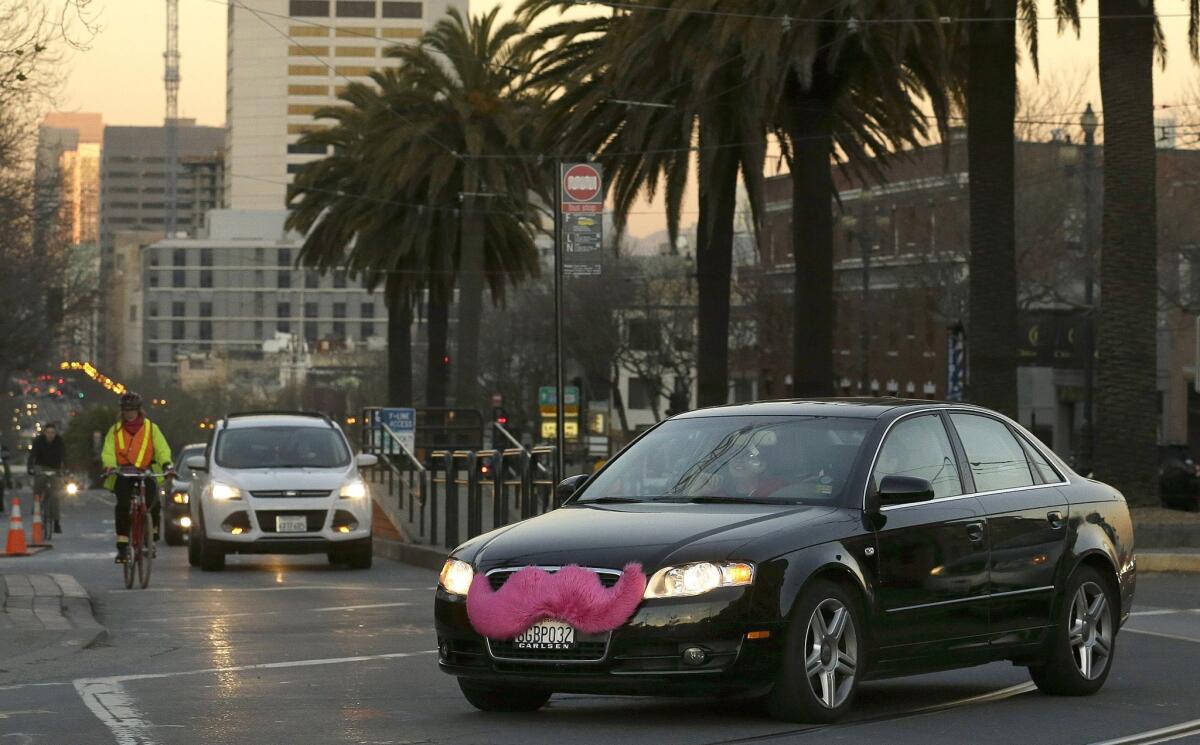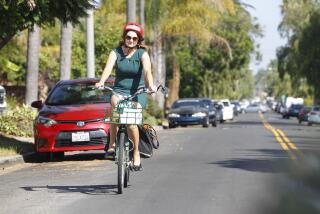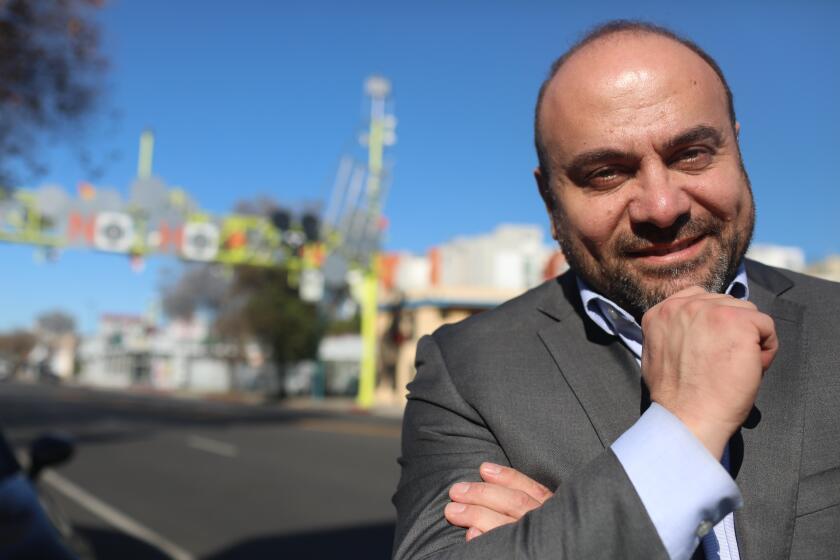Editorial: Are Uber and Lyft doing enough to check the backgrounds of their drivers?

In new lawsuits brought against the ride-sharing companies Uber and Lyft, the top prosecutors in Los Angeles and San Francisco counties make an important point about the lightly regulated sharing economy: The consumers who participate deserve a very clear picture of the risks they’re taking. That’s fair. But the district attorneys’ lawsuits also seem to be penalizing Uber and Lyft for following the rules approved by state lawmakers and regulators. Like any other companies, ride-sharing services must follow the law. But they shouldn’t have to fight repeatedly, in venue after venue, over what the rules should be.
The emerging sharing economy poses a challenge for government because it doesn’t fit neatly into existing regulatory structures. Individuals put their personal cars, homes and other assets to commercial use on an irregular basis, with the help of companies such as Uber and Airbnb that connect them to customers. Uber and Lyft compete with cabbies in the market for transportation on demand, but they differ from taxi companies to the extent that the state Public Utilities Commission has invented a new classification — transportation network companies — with its own set of rules that the PUC is responsible for enforcing.
The lawsuits by Los Angeles County Dist. Atty. Jackie Lacey and San Francisco Dist. Atty. George Gascón accuse Uber and Lyft of serving airports without the necessary permits, not having the accuracy of their GPS-based apps verified by the state, and in Uber’s case, improperly collecting airport surcharges from riders. The heart of the case, though, is the allegation that Uber and Lyft misled the public about the background checks they perform on drivers. Contrary to the companies’ public statements and websites, the lawsuits contend, the background checks don’t meet the “gold standard” for driver safety or represent “industry leading” efforts because, unlike the checks performed by cab companies, they aren’t based on a driver’s fingerprints.
Uber insists that it’s done nothing wrong, while Lyft has settled the district attorneys’ complaint and agreed to be more precise in its disclosures about driver background checks. More precise disclosures would be welcome from Uber as well on all safety-related issues.
Still, the background checks the companies bragged about meet the requirements imposed by the PUC. Lawmakers debated and rejected a bill this year that would have required ride-sharing companies to use the fingerprint-based system. Now, the fact that Uber and Lyft don’t use that system forms the basis for Lacey and Gascón’s allegation that the two companies misled the public. Evidently the companies can win in Sacramento but still lose in Los Angeles and San Francisco.
Follow the Opinion section on Twitter @latimesopinion
More to Read
A cure for the common opinion
Get thought-provoking perspectives with our weekly newsletter.
You may occasionally receive promotional content from the Los Angeles Times.










